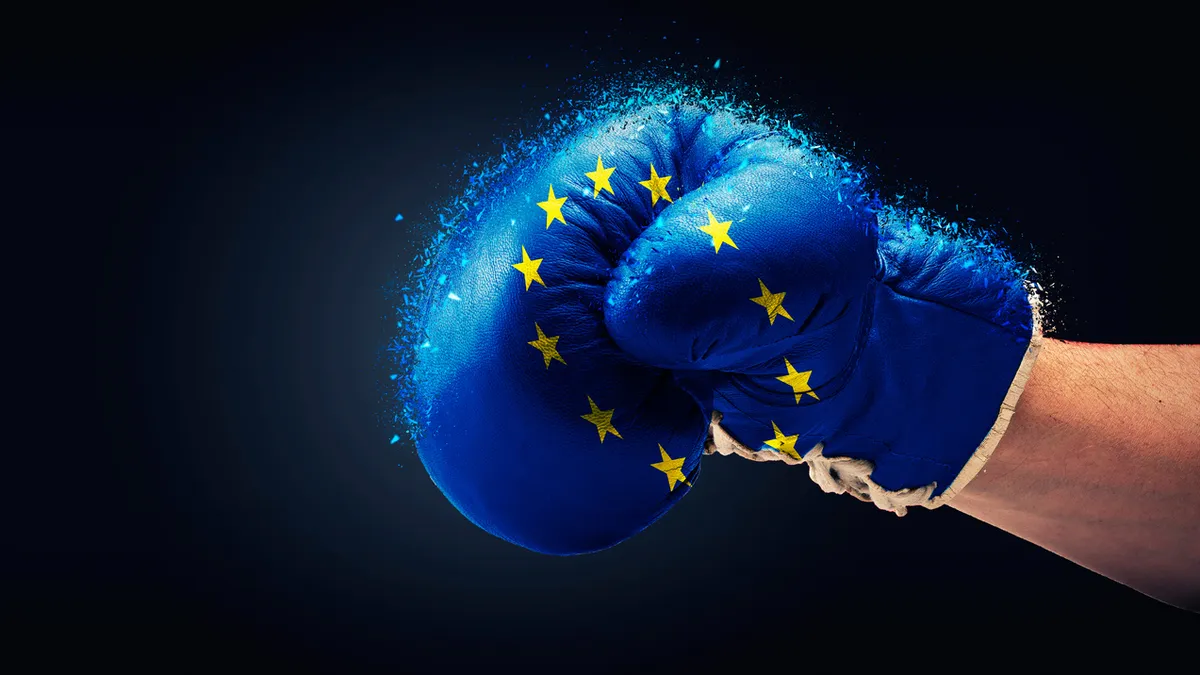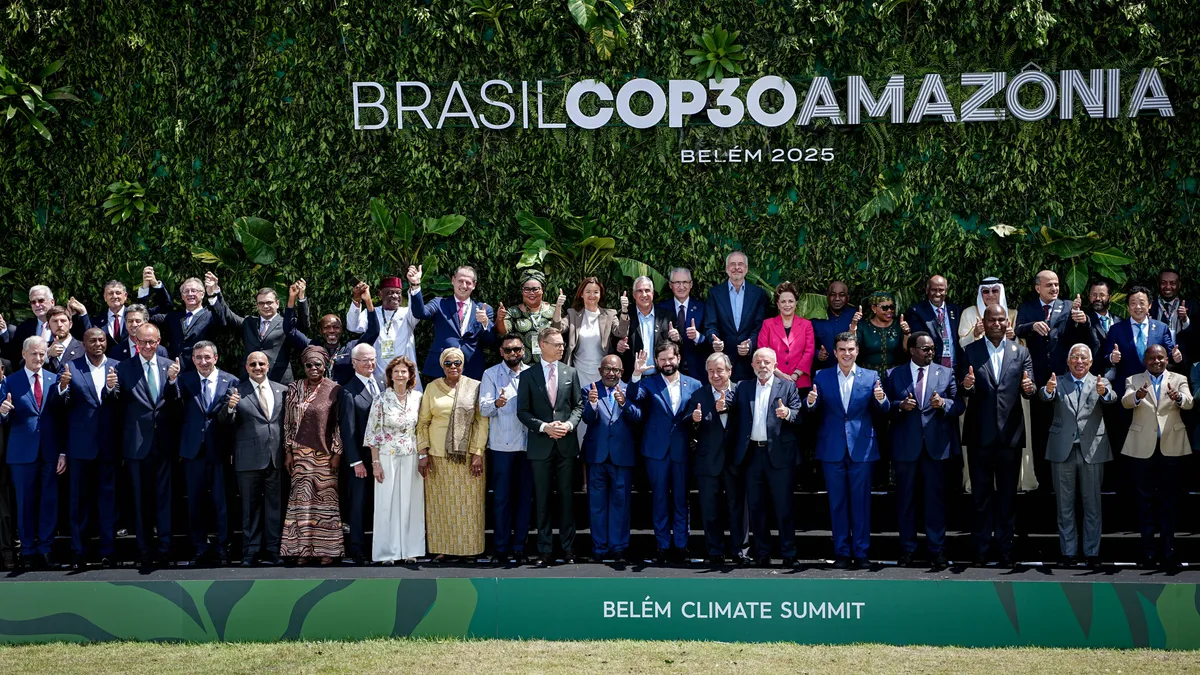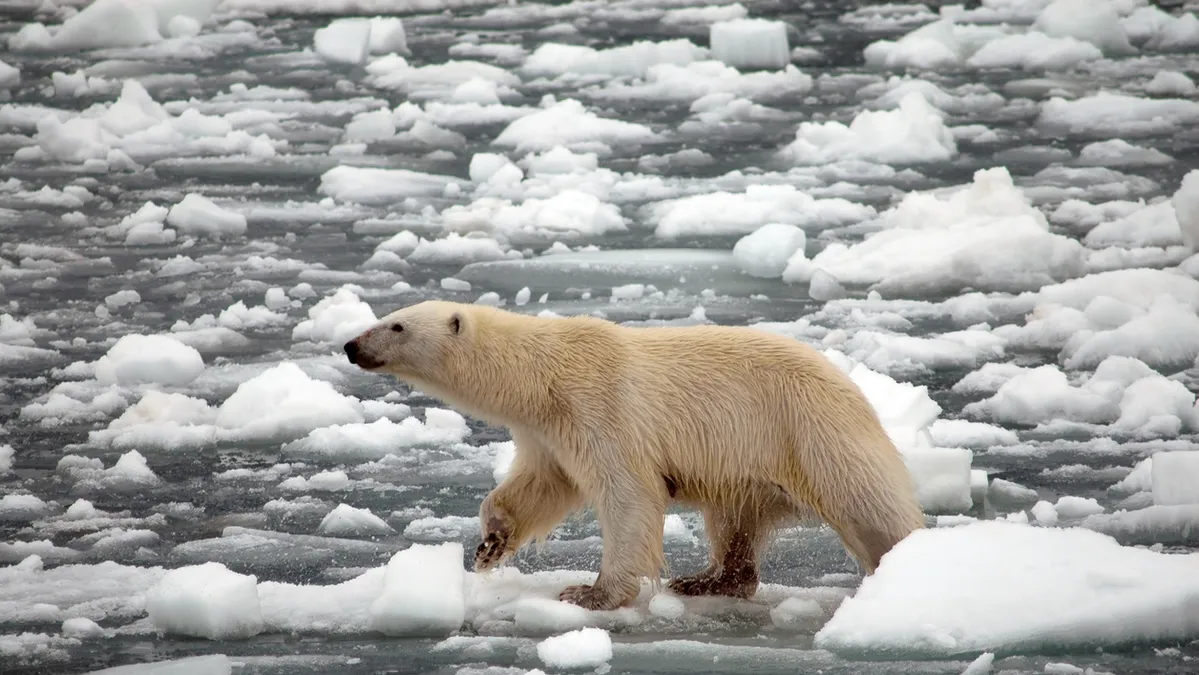On paper, the Commission’s plan was simple — add a few lines to the EU’s 2021 climate law, formalise emissions targets for 2040, and set a staging post on the path to an existing goal of climate neutrality ten years later.
But, as boxer Mike Tyson once put it: “Everyone has a plan until they get hit”.
In this case, the uppercuts came from the EU’s own member states, increasingly worried about the economic and political implications of further greenhouse gas cuts.
The national pushback has already delayed the submission of a key climate target that Brussels was supposed to send to the UN. It’s also forced Commission President Ursula von der Leyen to make a range of apparent concessions, in sectors from cars to forestry.
With a European Council looming, diplomats fear an outcome they liken to a Christmas tree — with each member state seeking to hang its favoured bauble on an increasingly fragile branch.
Duking it out
After pressure from member states, leaders will hold a “strategic discussion” on the topic at their 23 October summit.
The meeting’s goal is to offer guidelines on the flanking measures that need to be in place to achieve the 2040 objective — which, the Commission says, should be a 90% reduction in net greenhouse gas emissions compared to 1990.
It will then, in theory, be up to climate ministers to find a qualified majority on the legislative plan at a 4 November EU Council.
In practice, observers worry the talks could descend into horse-trading — where each capital, in exchange for support on 2040, seeks concessions on other files.
“The main risk is that each member state goes to European Council with its wishlist. Then leaders will discuss everything, and then nothing," said one diplomatic source.
Negotiating demands on the conclusions might descend into a tit-for-tat spiral, another diplomatic source said: “If one country tries to put in some wishes … then we will certainly be there with ours.”
The requests are already coming in. Slovakian Prime Minister Robert Fico already criticised the first draft of the summit conclusions, saying he wanted concrete proposals to tackle energy prices — an issue on which the Commission has now responded.
Hungary — well-known for deploying its veto at European Councils, especially when Ukraine is on the agenda — wants to go further, and discuss the percentage emissions target itself.
Heavyweights
Others wonder if two of the bloc’s most powerful leaders, Italy’s Giorgia Meloni and her German counterpart Friedrich Merz, will raise the automotive sector.
Merz has been increasingly vocal on his wish to reconsider a phaseout of petrol and diesel engines that was set to start in 2035. But it’s not a given he’ll bring it up this time: Berlin may, for now, be happy with the mention of “technological neutrality” in the latest, 17 October, draft of conclusions, Contexte understands.
Others might be tempted to discuss ETS2, the planned carbon market for buildings and road transport. Nineteen countries wrote to the Commission in June citing concerns over the impact on prices, and pitching improvements. The most sceptical, such as Poland, Czechia and Slovakia, have even called for cancelling its introduction, or pushing it back beyond 2027.
Some fear that a discussion could surface around effort-sharing — how climate ambitions are split between states, dealt with in a 2018 regulation — a topic likely to re-open divisions between east and west. The 2018 framework is due for review in 2026.
“What can happen is the pre-negotiation of the effort sharing target,” one of the diplomats already cited said. ”That's a big risk … it’s no secret that it can blow up."
Another potentially lively topic would be how to account for international carbon credits — received for supporting decarbonisation projects abroad — within the 2040 target. While some have serious reservations, the likes of France and Germany see them as an essential tool to drive emissions reductions. Poland, meanwhile, believes they help guarantee affordable carbon prices in the ETS carbon market.
The Commission’s July proposal says international credits shouldn’t be allowed to count towards the 2040 target until 2036, and can’t ever exceed 3% of 1990 net emissions.
On the ropes
On the ropes, the Commission came out swinging for its climate ambitions. Three days before the summit, von der Leyen wrote to national leaders in a bid to structure the Council debate.
Her letter calls on them to “stay the course …. toward climate neutrality and circularity”, but also calls for pragmatism and protection against unfair competition.
“The way our own policies have contributed to China’s emergence in green tech … should serve as a cautionary tale,” President von der Leyen said, citing solar power, batteries and electric cars.
The letter’s purpose appears to offer reassurance on particular national concerns. Von der Leyen commits to account for e-fuels and advanced biofuels when reviewing CO₂ rules for cars — a longstanding bugbear for Berlin — and to support manufacturers of heavy-duty vehicles.
In a nod to pro-nuclear countries such as France, she calls for “full use of all zero and low-carbon energy solutions” in the energy transition. She calls for ETS2 to have a “more robust price stabilisation system”, and says there’ll be proposals on energy prices “as soon as possible”.
Despite that bobbing and weaving, the Commission’s room for manoeuvre remains slim: too much flexibility handed out to capitals will make it harder for the EU to achieve its climate goals.
One-two
The first two national swipes at the 2040 file came months ago, from Berlin and Warsaw. The legal proposals originally planned for the beginning of 2025 were delayed to avoid influencing the 23 February German federal elections, and then the 18 May Polish presidential vote.
A number of sources have told Contexte that the objective was to avoid populist parties capitalising, by accusing governments of negotiating costly and unrealistic targets in Brussels.
When presenting the eventual proposals on 2 July, EU climate commissioner Wopke Hoekstra said the delay had been needed to consult with member states and MEPs over extra flexibility within the law. Alongside the 90% reduction target came a list of 18 other elements supposed to help achieve it — from technological neutrality to solidarity among member states.
Then came a further blow. The Commission and Denmark, currently chairing talks in the Council, wanted a deal at ministerial level. But ten member states, including the bloc’s biggest, derailed those plans by demanding escalation to the European Council. MEPs have also put their work on hold, pending a steer from leaders.
António Costa, the European Council chair, appears determined to leave the ring clutching a trophy — written conclusions agreed by consensus.
If that proves impossible — as it might, if Budapest doesn’t play ball — then there’s a back-up plan: for Costa to offer oral conclusions.
The hope is that such a declaration, commanding accord from most if not all leaders, could avoid the EU’s 2040 targets going out for the count.





